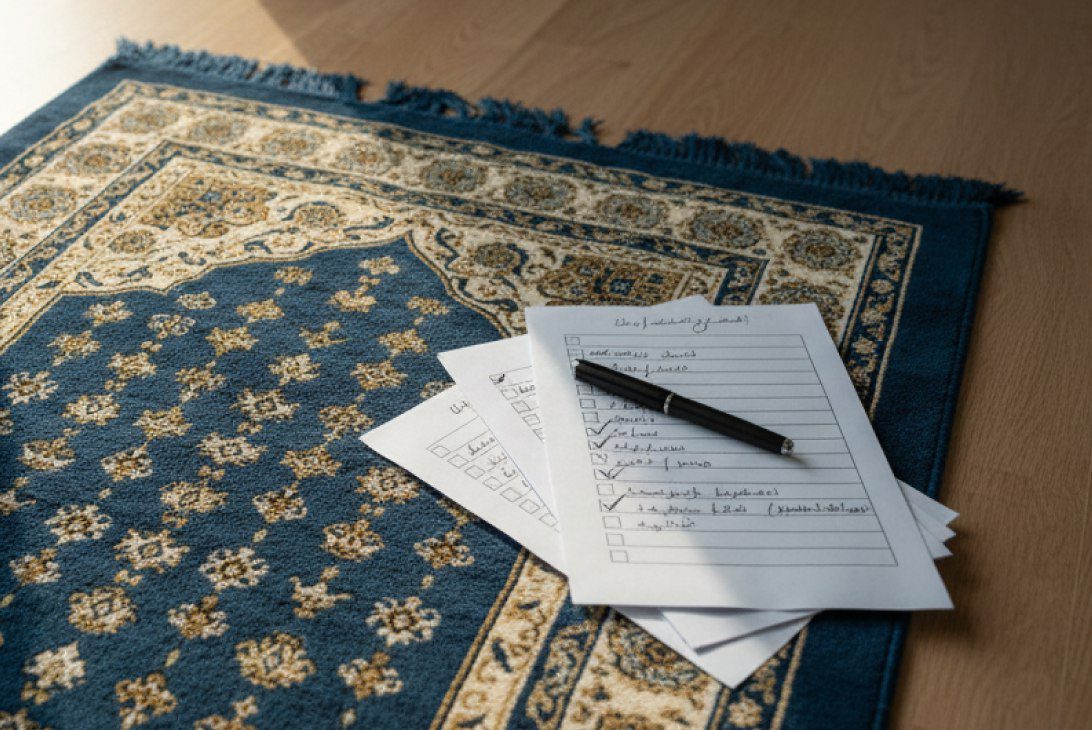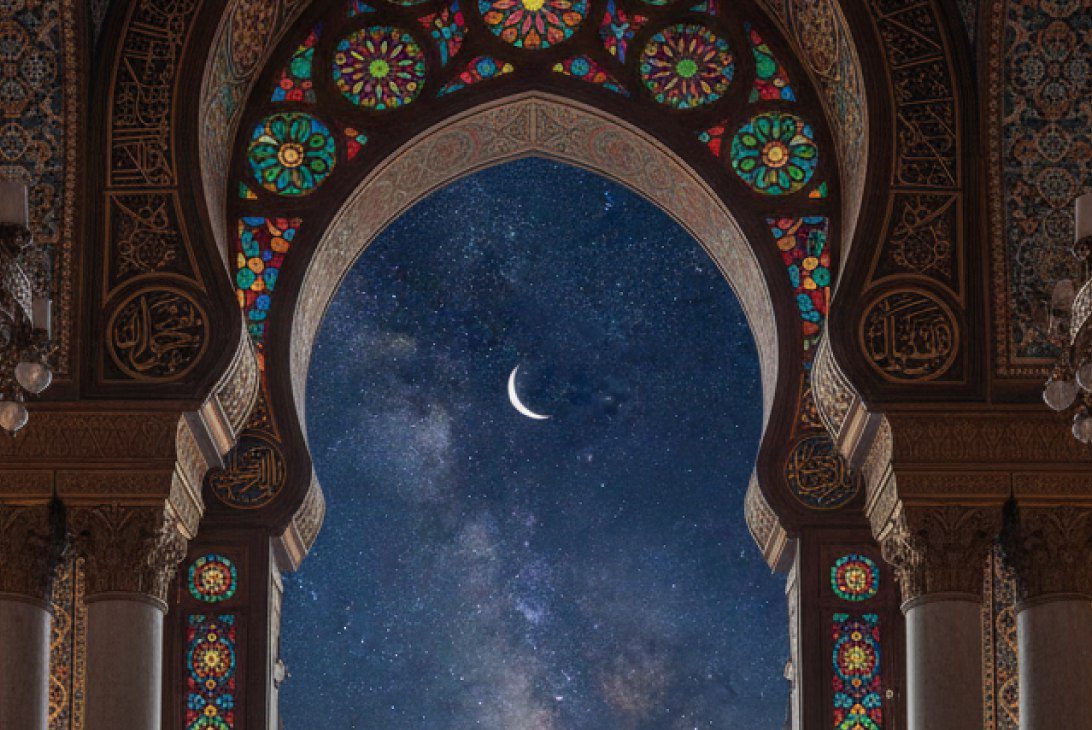Not every duʿā’ is equal. Some voices, some moments, and some hearts carry a special nearness to Allah. There are certain people whose duʿāʼ is always answered. What makes their duʿāʼ so powerful? Often, it’s the state of the heart: humbled, sincere, stripped of pride and fully reliant upon Allah. Below are categories of people and states where duʿāʼ is especially accepted.
1. The Distressed
Allah says: “Is He [not best] who responds to the distressed one when he calls upon Him?” (27:62).
In moments of utter desperation, people will instinctively turn to Allah Alone, even the disbelievers. All worldly means at this moment vanish, and the soul recognises its only refuge. It’s when a servant turns to Allah Alone, sincerely, that Allah responds.
Al-Qurṭubī (raḥimahullāh) explains: “Allah has guaranteed the response to the one in distress when he calls upon Him, and informed us of this about Himself. The reason is that desperation leads to sincerity, and the heart becomes fully detached from all besides Him. And sincerity holds a special status and covenant with Him — whether it comes from a believer or disbeliever, obedient or sinful.”
2. The Oppressed
The Messenger of Allah ﷺ said, “And fear the supplication of the oppressed, for there is no barrier between it and Allah” (Bukhārī). He ﷺ also said, “…Allah raises the supplication of the oppressed above the clouds, the gates of heaven are opened for it, and the Lord says: ‘By My Glory, I will surely help you, even if after some time’” (Tirmidhī).
The Prophet ﷺ said, “The supplication of the oppressed is answered, even if he is a sinner; his sin is upon himself” (Aḥmad). This is because his sin does not justify being wronged or having any of his rights denied.
The secret to their duʿāʾ being accepted lies in a heart humbled and broken by hardship, emptied of pride and stripped of reliance on creation. In that raw state of helplessness, the heart turns fully to its Creator, with complete certainty that none can remove the pain or lift the burden except Him.
3. The Weak
The Prophet ﷺ said, “Indeed Allah grants victory to this Ummah due to its weak members — through their supplications, ṣalāh and their sincerity” (Nasā’ī).
Their power lies not in status, but in humility and purity of heart. They don’t harm others or act arrogantly; they are kind, gentle, and sincere. Allah has honoured them with a special mercy in both this life and the next. The Prophet ﷺ said, “Shall I not inform you about the people of Paradise? Every weak and humble person who, if he were to swear by Allah, Allah would fulfill it” (Bukhārī).
4. The Traveller
The Messenger of Allah ﷺ said, “Three supplications are answered: the supplication of the fasting person, the supplication of the oppressed, and the supplication of the traveller” (Ṭabarānī).
Ibn Masʿūd (raḍiy Allāhu ʿanhu) said, “The longer the journey, the closer one is to the response of duʿā’, because prolonged travel humbles the soul through long separation from one’s homeland and enduring hardship; and brokenness is among the greatest reasons for the acceptance of duʿā’.”
Ibn al-Qayyim (raḥimahullāh) said: “And this — Allah knows best — is the secret behind the acceptance of the supplications of three people: the oppressed, the traveler, and the fasting person. It is due to the brokenness found in each of their hearts. The traveller experiences the pain of estrangement and distance, which humbles his heart. Likewise, fasting weakens and subdues the beast-like, carnal self, breaking its arrogance and humbling it.”
5. The Fasting Person
The Messenger ﷺ said, “There are three whose duʿā’ is not rejected: the fasting person until he opens his fast, the just leader, and the supplication of the oppressed person…” (Tirmidhī). He ﷺ also said, “Indeed, the fasting person has a supplication at the time of his ifṭār which is not rejected” (Ibn Mājah).
Duʿā’ is accepted throughout the fast and at the time of iftār, when opening the fast.
6. The Warrior
The Prophet ﷺ said, “Two (supplications) are never rejected, or rarely rejected: the duʿā’ at the time of the call to prayer, and the duʿā’ during war when the two armies attack each other” (Abū Dawud).
At that critical moment, where life and death meet, when a believer stands firm in the face of the enemy, their duʿā’ is accepted. How can Allah reject the plea of someone who willingly offers their soul for His sake? Allah honours such sincerity with answered duʿās in the battlefield and immense reward in the hereafter.
7. The Pilgrim
The Messenger of Allah ﷺ said, “The warrior in the path of Allah, the pilgrim, and the person performing ʿumrah are the delegation of Allah. He invited them so they responded to Him; they asked Him, so He gave them” (Nasā’ī).
A ‘delegation’ refers to distinguished guests who travel to meet a king or ruler for a specific purpose. It is well known that human rulers receive such guests with honour, celebration, and generous hospitality. Can you, then, even imagine the honour and generosity shown by the Lord of all creation?
8. The One Who Drinks Zamzam
The Messenger of Allah ﷺ said, “The water of zamzam is for whatever it is drunk for” i.e. it is a means of your duʿā being answered” (Ibn Mājah).
ʿAbdullāh b. al-Mubārak (raḥimahullāh) said, “I am drinking this (so that Allah quenches my) thirst on the Day of Judgement.”
9. The One Who Prays for His Absent Brother
The Prophet ﷺ said, “No Muslim servant prays for his brother in his absence except that the angel says: ‘And for you the same’” (Muslim). He ﷺ also said, “The supplication of a brother for his brother in his absence is not rejected” (Bazzār).
This type of duʿāʾ is special, free of pride or hidden motives, and filled with sincerity. It comes from a heart that loves purely for the sake of Allah. So if you want your own prayers to be accepted, begin by cleansing your heart of envy and bitterness, and fill it with love, sincerity, and goodwill.
True love and brotherhood mean remembering each other in prayer without needing to be asked. Yaḥyā b. Muʿādh (raḥimahullāh) said, “What a poor friend he is: the one you have to ask, ‘Remember me in your duʿā’”.
Imām al-Nawawī (raḥimahullāh) said “Some of the early righteous people, when they wanted to make duʿā’ for themselves, would instead pray for their Muslim brother with that same supplication because it would be accepted, and they would receive the like of it.”
“The quickest duʿāʾ to be answered is the duʿāʾ made by one person in the absence of another.” – Ibn Taymiyyah (raḥimahullāh)
10. The Loving Parent
The Prophet ﷺ said, “Three supplications are not rejected: the supplication of a parent for their child, the supplication of a fasting person, and the supplication of a traveller” (Bayhaqī).
The highest, truest, and most selfless form of love between human beings is the love a parent has for their child. This deep, inherent love is the secret behind why a parent’s prayer for their child is so powerful and often answered.
11. The One Who Remembers Allah in Times of Ease
The Messenger of Allah ﷺ said, “Whoever wishes that Allah responds to him during times of hardship and distress, let him increase his supplication during times of ease” (Tirmidhī). He ﷺ also said, “Know Allah in times of ease, and He will know you in times of hardship” (Aḥmad).
A common mistake is to make duʿā’ only in times of hardship — when we’re ill, struggling financially, or facing personal challenges — yet neglect it when life is smooth. While turning to Allah in hardship is good, we should also remember Him and make duʿā’ in times of ease.
Salmān (raḍiy Allāhu ʿanhu) said, “If a person is frequently making duʿāʾ during times of ease, and then hardship strikes and he calls upon Allah, the angels say: ‘A familiar voice: intercede for him.’ But if a person is negligent in duʿāʾ during times of ease, and then calls upon Allah only when hardship comes, the angels say: ‘An unfamiliar voice’; and they do not intercede for him.”
12. The One Who Remembers Allah Frequently
The Messenger of Allah ﷺ said, “There are three (people) whose supplication Allah does not reject: the one who remembers Allah frequently, the oppressed person, and the just leader” (Ṭabarānī).
Ibn ʿAbbās explained ‘those who remember Allah frequently’ as those who remember Him after prayers, in the morning and evening, when going to bed and waking up, and when leaving or entering the house.
Their hearts find peace only in remembering Him. And it’s no surprise: whoever loves something, remembers it often. Their hearts overflow with love for Allah, so they remember Him constantly. For such people, Allah grants acceptance and answers their duʿāʾ.






